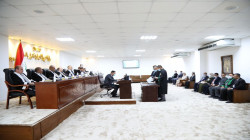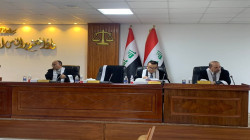Iraq's Supreme Court adjudicates on constitutionality of budget

Shafaq News/ The Supreme Federal Court (SFC), Iraq's highest judicial authority, on Monday issued a series of rulings on Monday addressing challenges presented by the Kurdistan Regional Government (KRG) pertaining to the federal budget law.
This long-awaited judgement provides clarity on disputed elements within the law, number 13 of 2023, that oversees Iraq's federal budget for the fiscal years 2023-2025.
An official press release said that the court reviewed the lawsuit, numbered 168/federal/2023, filed by the plaintiff (the KRG President, in his official capacity) against the defendant (the Speaker of the House of Representatives, also in his official capacity).
The lawsuit specifically contested certain items within the budget law.
The court's ruling deemed several provisions in the law "unconstitutional". These include the phrase "with the approval of the federal Prime Minister" as stated in Article 11/first and "in case the House of Representatives fails to take the necessary decision" as mentioned in Article 13/seventh.
However, the SFC dismissed the challenge regarding the constitutionality of several other sections, specifically articles 2/first/5/b, 11/second, 12/second/a, b, c, d, e, and 13/eighth/b.
In a separate but related ruling, the SFC also concluded the challenge posed by the Federal Government against the budget law. According to an additional press release, the court reviewed the lawsuit numbered 153/federal/2023, raised by the plaintiff (the Prime Minister, in his official capacity) against the defendant (the Speaker of the House of Representatives, in his official capacity).
The SFC's definitive verdict, binding on all authorities, declared several phrases in the law to be unconstitutional. These include the word "exclusively" in Article 2/first/8/c/6, the phrase "upon his request" in the last section of Article 16/second, along with Articles 20/sixth, 28/fourth/a, 57/first/c, 70/second, and 72.
Nevertheless, the Court dismissed the plaintiff's lawsuit regarding the constitutionality of Articles 28/fourth/b, 62/fourth, 63/third, 65/second, 71, and 75 of the above-mentioned law.





